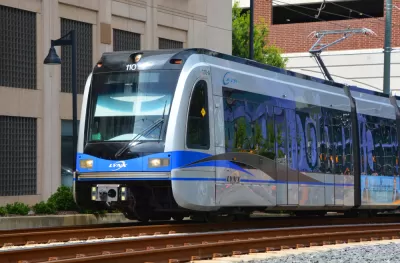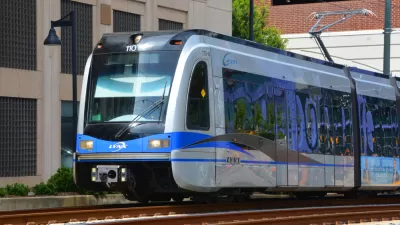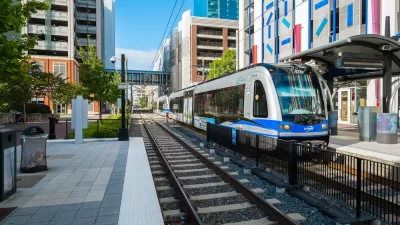The Charlotte Area Transit System must fully staff its Rail Operating Control Center or else. It’s only the latest challenge for the city’s troubled light rail transit system.

The North Carolina Department of Transportation (NCDOT) recently sent a letter informing the Charlotte Area Transit System (CATS) that it must bring its Rail Operating Control Center (ROCC) to full staffing or else it must cease operations, according to an article by Genna Contino.
NCDOT recently performed a surprise inspection, finding the ROCC operated by one staff member. “It’s standard for at least two controllers to work at the same time to run both Charlotte’s Gold Line and Blue Line trains efficiently, the NCDOT inspection found,” writes Contino. “It’s preferable for a rail controller chief to also be working with them, interim CATS CEO Brent Cagle said.”
Cagle is on the record saying that the ROCC will be fully staffed within three to six months. A mandatory overtime schedule will maintain staffing and service in the meantime.
The staffing shortage at the ROCC was precipitated by the firing of the light rail controller Terry Creech on duty at the time of the Blue Line derailment in May 2022, according to an earlier paywalled article published by the Charlotte Observer.
The derailment is creating all sorts of trouble for CATS, however. A recent report called for the CATS fleet of light rail trains to be repaired with urgency. A March article by Greg Lacour called the situation at CATS a “train wreck.”
The Charlotte experience is another example of an ongoing crisis with the service and maintenance of public transit in the United States, as declining revenues and stagnant ridership coincide with operator shortages and perceptions of increased crime on transit systems all over the country.

Planetizen Federal Action Tracker
A weekly monitor of how Trump’s orders and actions are impacting planners and planning in America.

San Francisco's School District Spent $105M To Build Affordable Housing for Teachers — And That's Just the Beginning
SFUSD joins a growing list of school districts using their land holdings to address housing affordability challenges faced by their own employees.

The Tiny, Adorable $7,000 Car Turning Japan Onto EVs
The single seat Mibot charges from a regular plug as quickly as an iPad, and is about half the price of an average EV.

Austin's First Single Stair Apartment Building is Officially Underway
Eliminating the requirement for two staircases in multi-story residential buildings lets developers use smaller lots and more flexible designs to create denser housing.

Atlanta Bus System Redesign Will Nearly Triple Access
MARTA's Next Gen Bus Network will retool over 100 bus routes, expand frequent service.

Toronto Condo Sales Drop 75%
In two of Canada’s most expensive cities, more condos were built than ever — and sales are plummeting.
Urban Design for Planners 1: Software Tools
This six-course series explores essential urban design concepts using open source software and equips planners with the tools they need to participate fully in the urban design process.
Planning for Universal Design
Learn the tools for implementing Universal Design in planning regulations.
Smith Gee Studio
City of Charlotte
City of Camden Redevelopment Agency
City of Astoria
Transportation Research & Education Center (TREC) at Portland State University
US High Speed Rail Association
City of Camden Redevelopment Agency
Municipality of Princeton (NJ)




























